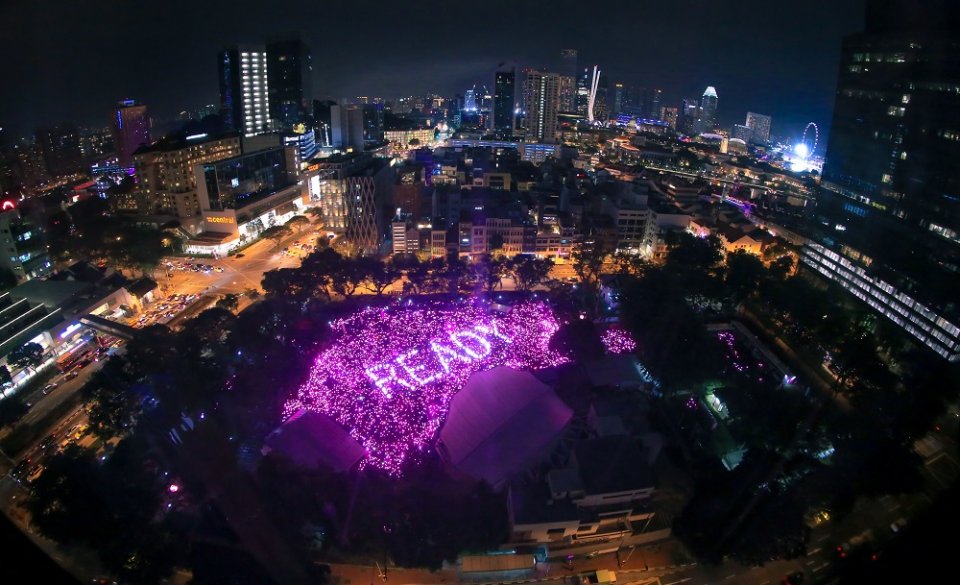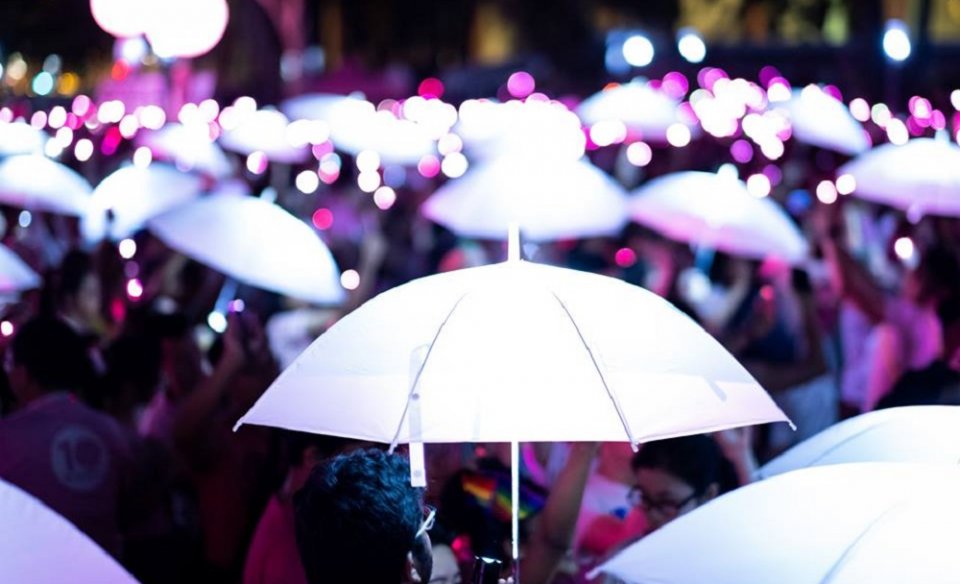Much is afoot in the current state of affairs concerning the LGBT community.
On Sep 6, India’s Supreme Court struck down a British colonial-era law criminalizing gay sex. The section in the Indian Penal Code, also called 377, was born of the same legislation inherited from the British that we know as our 377A; back home, the landmark ruling threw Singaporeans into an understandable frenzy. Within hours of the news, veteran Singapore diplomat Tommy Koh made a public call on Facebook for the local gay community to challenge Section 377A. A petition, among others, was quickly started on Change.org, calling for signatures to repeal Section 377A. Around the same time, an opposing petition to “Please Keep Penal Code 377A in Singapore” surfaced, started by a mysterious Paul P, and stands at 90,000 signatures as of press time.
On Sep 9, an official “Ready for Repeal” petition was started by 23 people—authored by Glen Goei and Johannes Hadi with public figures like actress Janice Koh and Chairman of Banyan Tree Holdings Ho Kwon Ping (and his wife) amongst its lead signatories. Open only to Singaporeans and Permanent Residents, the petition will be submitted and sent to the Penal Code Review Committee by Sep 24—in time for the first major review of the Penal Code in more than a decade, on Sep 30.

The light-up at Pink Dot 10 was in response to the commonly heard statement that Singapore is “not ready” for a repeal of the law. Photo credit: Sebastian Tan
The situation is messy, messier than it has ever been in the last decade. But the buzz generated by Facebook polls, status updates and media reports, shouldn’t simply be taken as signs of a society becoming woke. The opinions from both sides are byproducts of a dangerous snowball effect created by politicians coaxing “the society” to make its choice for them.
A new survey reported on by the Straits Times revealed that more than half of a pool of Singaporeans surveyed still support Section 377A. Another, published by Yahoo Singapore, showed an overwhelming percentage in favor of keeping the law. And while the Change.org petition and Ready for Repeal stand at 15,000 and 27,000 signatures respectively, the opposing petition has 90,000 signatures.
But these are not numbers that can be taken at face value. When the government asks for the public to decide on a matter that has long since been unfairly painted, they are retreating to a safety net strung and supported by angry extremists who are happy to steer the argument in their favor.
Pages like Singaporeans Defending Marriage & Family (which has since been taken down by Facebook) and Singapore Affairs may claim to be “pro-family”, yet produce content tantamount to abuse of individuals and the community, all while attempting to erode the legitimacy of pro-LGBT groups and pages. Leaving a matter of human rights in their hands would be irresponsible.
A real Singaporean
In contrast, a public Facebook page Real Singaporeans defending the family and shared values has been working to develop meaningful conversation on the topic since June 2017. While its name may seem to be a direct jibe to the aforementioned SDMF, founder and administrator Martin Piper said its founding was much more complicated.
The 45-year-old QA Head at a financial institution, who is a frequent contributor to newspaper forums, said he started noticing a distinct pattern in replies whenever he spoke up for LGBT equality online. First came the homophobic insults, then xenophobia, and finally attacks on his race. All were grossly unjustified—married with a daughter to a Singaporean woman, Piper is a Singaporean citizen.
“I looked for the source and noticed several people were members of the same ‘anti-Pink Dot’ type of pages,” he shared. “I was shocked because they were cesspools of very obvious inaccurate media, mostly links to sites that are published in the US from organisations that are known to promote various extremist views. They are not worthy sources of information.”
Some pages even posted abusive pictures of him and his daughter, along with inaccuracies about his private life and sexuality. Hence his decision to create the page, as a safe place to promote compassion for actual LGBT victims of bullying, “post factually accurate information”, and show straight allies that “actually it is okay to speak up and be heard”.
Majority/minority issue a non-issue
If the numbers game played by the various petitions seems worrying, Piper is unperturbed. He pointed out that despite its soaring statistic, the opposing petition lacks the same “good governance” of petition data as the Ready for Repeal one, which specifically collects citizenship or PR status and postcodes.
The boost in numbers seems to have come from abroad. Piper said he watched the numbers of the petition in real time and realized they did not slow down at local nighttime, thereby “indicating external influences”. If going by numbers alone, it would be an inaccurate representation of Singapore society.
All that said, whether the government takes this into account is secondary. When asked about the dangers of having a vocal minority take on a silent majority, Piper asserted that the majority/minority issue is “a diversion from the real issue”.
“I see the real issue as a matter of leadership from the government. We elect representatives to lead; our MPs, it’s their job to be more knowledgeable on subjects that affect society. It’s their job to do what is right and make hard decisions, not what is popular and potentially easy. I see it as their job to be correct, not just politically correct. The overwhelming evidence is that being LGBT is genetic, they are perfectly normal people; they are just a minority group in society.”
Relying on a majority vote then is not only unfair, it is also unnecessary—because it forsakes protection of a minority that is the one deserving it.
Moral moves
And yet, the government has proven that it can make moral decisions uninfluenced by aggressive partisans. As of Sep 9, the extensive, ongoing review of the Penal Code is working towards removing marital immunity for rape—a “momentous step forward for women’s rights” if fully repealed, according to AWARE Singapore’s executive director Corinna Lim—and decriminalizing attempted suicide, also a long-debated issue many had come to accept as a norm. Seeking to increase protection for vulnerable groups is commendable, and justly addresses very real human issues. But why is there hesitance from the government to extend that same empathy and compassion towards the LGBT community, a minority community that just as much deserves protection?
The argument or fear that extending rights to a minority group would be prioritizing their needs above the majority is akin to the laughably short-sighted “All lives matter” argument. It seeks to erase an actual problem under the guise of equality not properly protected by laws, disregarding context and dismissing whole groups of real people with real stories of injust.
In a state that claims to practice meritocracy and secular democracy, our learned leaders must be able to understand that, said Piper. “We do not promote the needs of a minority over the majority by granting a minority equality. We as a society are better as a whole when minorities or the vulnerable are treated equally. It’s the reason why the government decades ago decided to enact racial equality of minorities as a policy.”

Pink Dot 10. Photo credit: Pink Dot SG Facebook
In a previous interview, actress and activist Pam Oei pointed out that conflating human rights with a supposed “gay agenda” was erroneous. “There is no gay agenda; it’s equality,” she said.
“Until the day that a gay person doesn’t have to sit down and come out to another person, we’re not equal. Until the day that a gay person is not a criminal because a blowjob just happened—with a straight couple it’s no problem; a gay couple it’s like ‘eugh, it’s a crime’—then we are not equal.”
In less than a week the winds of change have blown up a hurricane, and it is a momentous thing. But if we only stand for certain types of equality and not others, we will remain to our own citizens and to the rest of the world a first-world country with third-world mindsets. Change can only really happen from within.





